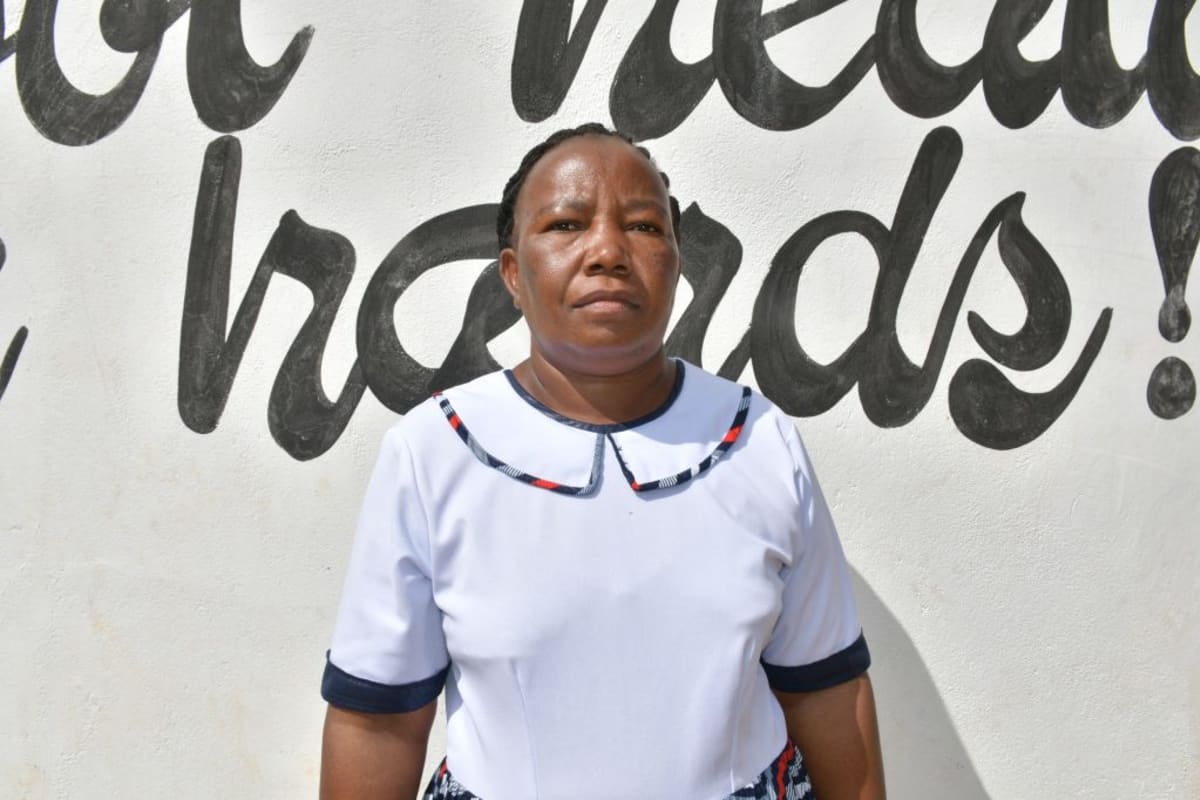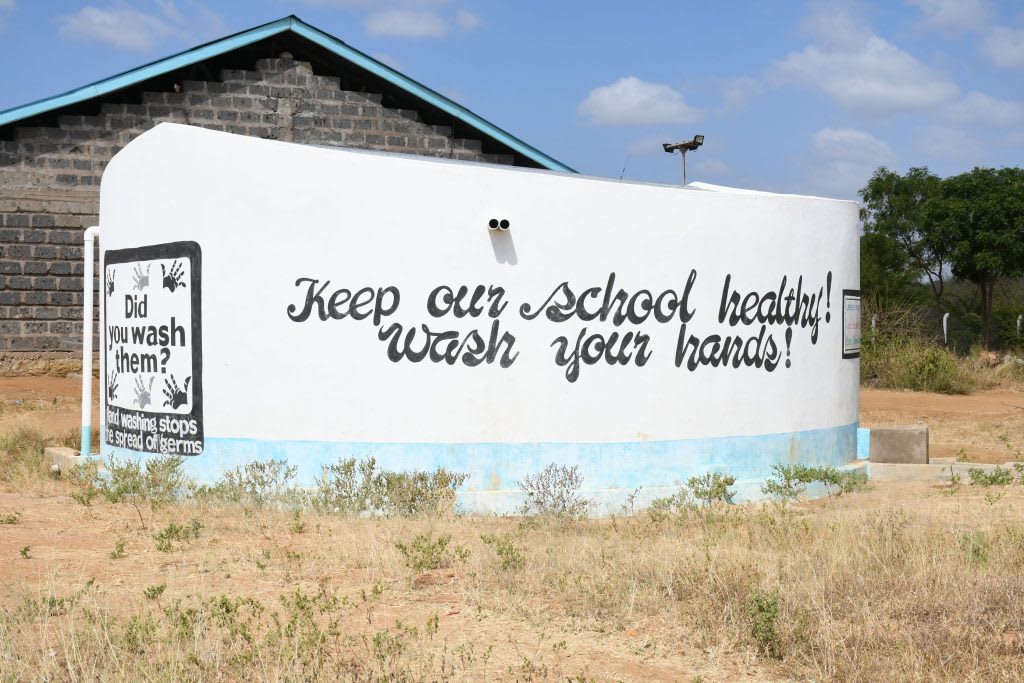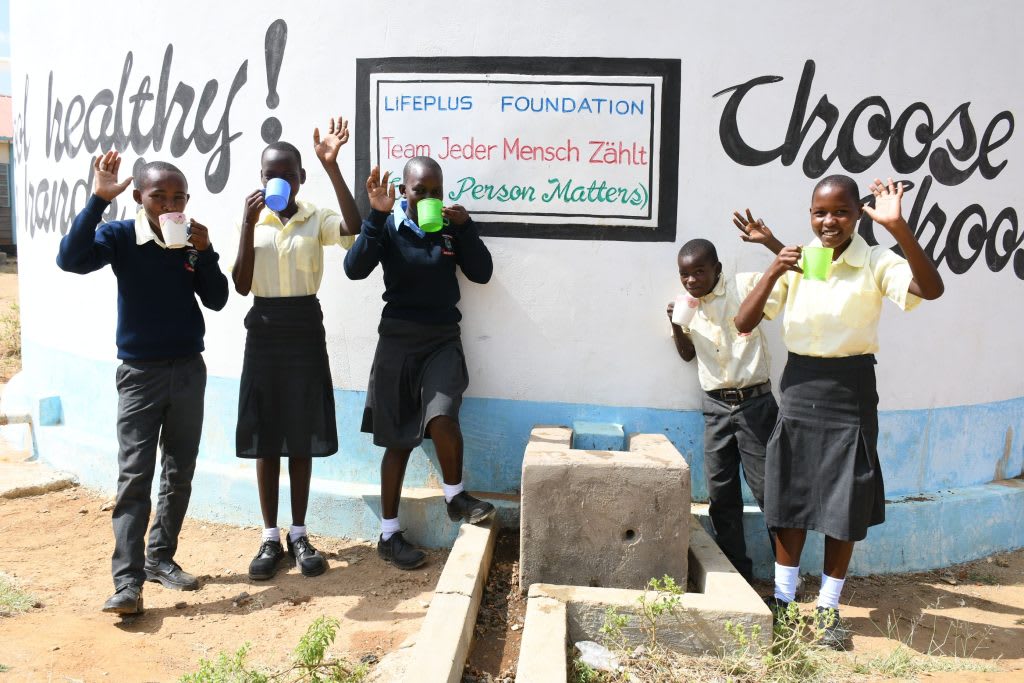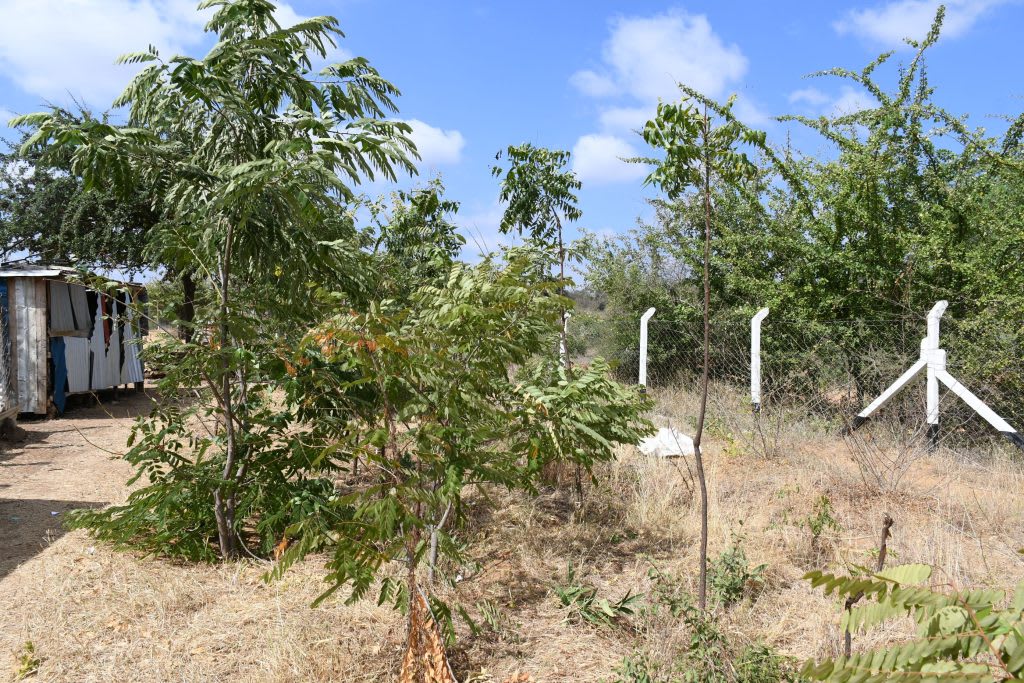Teaching Without Limits: The Power of Water at Mutwang’ombe Secondary

Your gift last year unlocked the potential for a brighter future for teacher Naomi Ngina and her students. Since then, Mutwang’ombe Secondary School, which has 461 students and teachers, has had clean, reliable water. Your contribution has made a significant impact. Thank you for making a difference!
"For teachers, it has been a complete transformation. Before, we spent time rationing water, making difficult decisions about what little we had. Now, we can focus entirely on teaching."
Before the Rain Tank Installation
Like many teachers in Kenya, 49-year-old Naomi Ngina felt the pressure of insufficient water at school. She never knew if there would be enough, and before last year’s water intervention, it negatively affected her and her students.

Students waiting to collect water from their previous small rain tank.
Drinking the water had severe consequences. Many in the community suffered from waterborne diseases that created health problems and affected their daily lives. For Ms. Ngina, in particular, it lessened her opportunity to help her students learn since they had difficulty focusing and often were absent because of water-related illnesses.
"In the past, before the implemented project was built, we faced severe water shortages that affected almost every aspect of school life. The water tanks we had could not store enough water to sustain us, especially during the prolonged dry spells. We had to buy water from a water boozer (vendor) at an unsustainable cost, and even then, deliveries were delayed during peak drought periods. We had to ultimately ration the available water. Parents, who are mostly farmers, struggled to pay fees, and many had to bring water from distant, contaminated rivers to compensate. The situation was dire—students went thirsty, meals were delayed, and maintaining hygiene was a challenge," Ms. Ngina shared.
"Getting water was an exhausting and unreliable process. The school depended on water bowsers that [were] often delayed, leaving us in desperate situations. The parents would bring water from home, but since the sources were far and the water was unclean, it was neither enough nor safe. The little water we had had to be rationed, meaning that drinking water was limited, and cleaning classrooms and latrines was secondary to basic survival. Teaching in such an environment was disheartening because students couldn’t concentrate on learning when they were hungry, dehydrated, and uncomfortable."
Since the Rain Tank Installation
Your generous gift last year was much more than a simple donation; it was a powerful statement about your commitment to Ms. Ngina and her students' future. By supporting the water solution, you made clean water an everyday reality, fostering hope for a brighter future.

The school rainwater tank.
Reliable and clean water lays the groundwork for improved health, education, and economic possibilities, allowing people to thrive. We frequently hear from those we interview that "water is life!"
"Having water readily available at school has been life-changing. There’s no more uncertainty about when the next water supply will come or whether we have enough for the day. The students can now drink whenever they are thirsty and are no longer worried about where to get the next sip of water. The school environment is now cleaner and healthier because we have sufficient water for sanitation. Most importantly, we no longer have to spend time and resources sourcing water—it’s here when we need it!" said Ms. Ngina.
The Future is Looking Bright!
A year ago, you made a difference for Ms. Ngina and her school community. This is just the first chapter of their story as access to clean water continues to improve their lives!
At The Water Project, we value sustainability and want to ensure that people continue to thrive. We commit to monitoring this project to ensure the water is always flowing and safe to consume. We inspect the system hardware, track water availability, conduct sanitary inspections, and collect water quality samples to identify risks. We work with our team on the ground to resolve them.
You gave Ms. Ngina a crucial tool for achieving her dreams of helping her students: access to clean water. Together, we can excitedly expect that with this precious resource, her enthusiasm and courage will help fulfill those dreams.

Students drink water whenever they need.
"The availability of clean water has significantly reduced waterborne diseases like typhoid, dysentery, and amoebiasis among students and teachers. Before, we had frequent cases of stomach infections, which affected attendance and performance. Now, our students are healthier, and we have fewer sick days, meaning they can focus on learning. We’ve also improved sanitation—teachers and students no longer have to endure foul-smelling latrines because they can now be cleaned regularly," Ms. Ngina said.
"Students and staff alike are now more comfortable during their stay in school. There's no more worrying about where the next supply will come from. The students are hydrated, classrooms are clean, meals are prepared on time, and hygiene standards have improved. It’s an incredible relief to operate in a school where water is no longer a crisis," she continued.

Teacher Ngina.
Teacher Ngina reflected on the impact clean water has made for her students.
"Students now have more time to focus on their studies instead of worrying about water. Before, they were constantly struggling and scrambling for water during breaks due to the imminent scarcity. Even their meals are now prepared within [the] schedule, and [they] no longer need to resume classes on [an] empty stomach like before. Now, they have access to drinking water anytime, and they study in a clean and comfortable environment. Cases of students missing school due to waterborne illnesses have dropped, and overall concentration and performance have improved."
She went on to share that it's not only the student's lives that have changed!
"For teachers, it has been a complete transformation. Before, we spent time rationing water, making difficult decisions about what little we had. Now, we can focus entirely on teaching. We don’t have to endure the frustration of students being late to class due [to] spending too much time scrambling for water or dealing with illnesses caused by contaminated water. Additionally, we no longer have to stress about cleaning the school—water is available, and hygiene standards are maintained effortlessly."
"With a steady water supply, we have been able to plant and nurture trees within the school compound, bringing back a greener and more welcoming environment. We have also been [able to] reduce school expenses by cutting down on the costly water bowser deliveries, freeing up funds for other development projects. Also, we have improved the school’s hygiene practices, making the environment more conducive to learning," she boasted.
"I am most proud of how this project has transformed the entire school experience. We no longer struggle with water shortages, and the positive changes are visible everywhere. Students are healthier, learning conditions have improved, and the school environment is thriving. It is amazing to see how something as simple as access to clean water has elevated our school’s standards, boosted student morale, and eased the burden on teachers and parents. Having sufficient water is no longer a luxury—it’s a reality for us. And that, to me, is the most fulfilling part of this journey," she concluded.

Trees planted by the school.
See The Water Project in Naomi Ngina's Community »